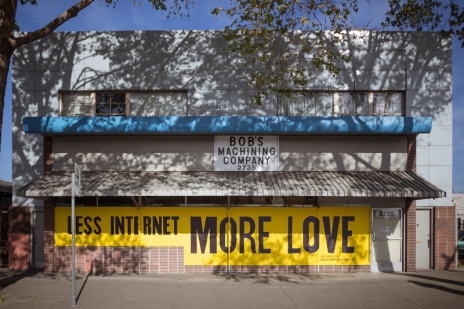The Foucauldian Left represents an unfortunate regression to the Marxist obsession with scientific rigor. This Left still wants to put historical events in a theoretical context. It exaggerates the importance of philosophy for politics, and wastes in energy on sophisticated theoretical analyses of the significance of current events. But Foucauldian theoretical sophistication is even more useless to leftist politics than was Engels’ dialectical materialism. Engels at least had an eschatology. Foucaldians do not even have that. Because they regard liberal reformist initiatives as symptoms of a discredited liberal ‘humanism,’ they have little interest in designing new social experiments.
Richard Rorty, Achieving Our Country
A little over a year ago the Black Lives Matters protest movement swept over Berkeley and Oakland. My boyfriend and I skirted the line between participant and spectator, walking or driving along the protesters over the course of that week. In some respect, it felt like you were at the forefront of something that mattered; and each night I didn’t put my body out on the line triggered a feeling of guilt. At the same time, and this part is way more real, it was pretty obvious that most of this stuff was based on some sort of image young “radical” 20 somethings felt compelled to live up to. But sincerity is not the question at hand.
The thing that really started to eat at me was the fact that here we were, protesting some sort of police-born phenomenon that had been plaguing the country. Except none of us knew about how the police worked. None of us understood its funding, its internal mechanisms, the politics and the money and training behind the department stalking us as we walked in the night. It struck me that we could all sit around and happily talk about Marx and Foucault and Trotsky but no one really understood what the fuck politics actually meant outside of a bleak, imaginary one conceived by philosophers over a century earlier.
I’ll never forget when, over an Irish coffee, I asked my now former best friend if she can see how this obsession with philosophy prevents our generation from meaningful participation in the political sphere. (At the time I was reading Mark Danner’s brilliant articles on the Iraq War, which if you want to jog your memory you can find here.) She blankly stared at me and responded “I believe we all live in different realities.”
I was totally flabergasted. I couldn’t and still can’t understand the conflation between the concrete–torture memos, directives from the Capitol, internal fights between the Department of State and the White House–and the imaginary.
Is this some sort of testament of our intellectual degradation? On the one hand it feels like theory fills the void left by secularism; installing a total and systemic view that 1) privileges the social over the political and 2) explains this highly social universe within a single narrative. People rely on heuristics and feelings to determine socio-political sentiments (as distinct from researched, complex thoughts) because the social is the most natural and obvious domain of experience today. To understand what is it like to be a woman, or not a woman, to be gay or not gay, I live my day to day life, I observe, I feel, and I configure these observations into whatever set of beliefs I hold. Not a lot of intellectual leg work goes on in determining a “feeling” on one side of the fence or another.
Policy is different. Policy requires knowledge of extenuating circumstances, of potential backfire, of loopholes and similar legislation. It requires understanding the interests at play and examining the repercussions. What policy does not pose for most, however, is the possibility of egotistical involvement. Policy does not necessarily fall into the now tired feminist statement “the personal in the political.”
I have no desire to wrap this up eloquently. For now, it’s frustrating to watch this. It’s equally frustrating that at this point I know more about Rorty, and Tocqueville than I do about policy. They’d be disappointed.

